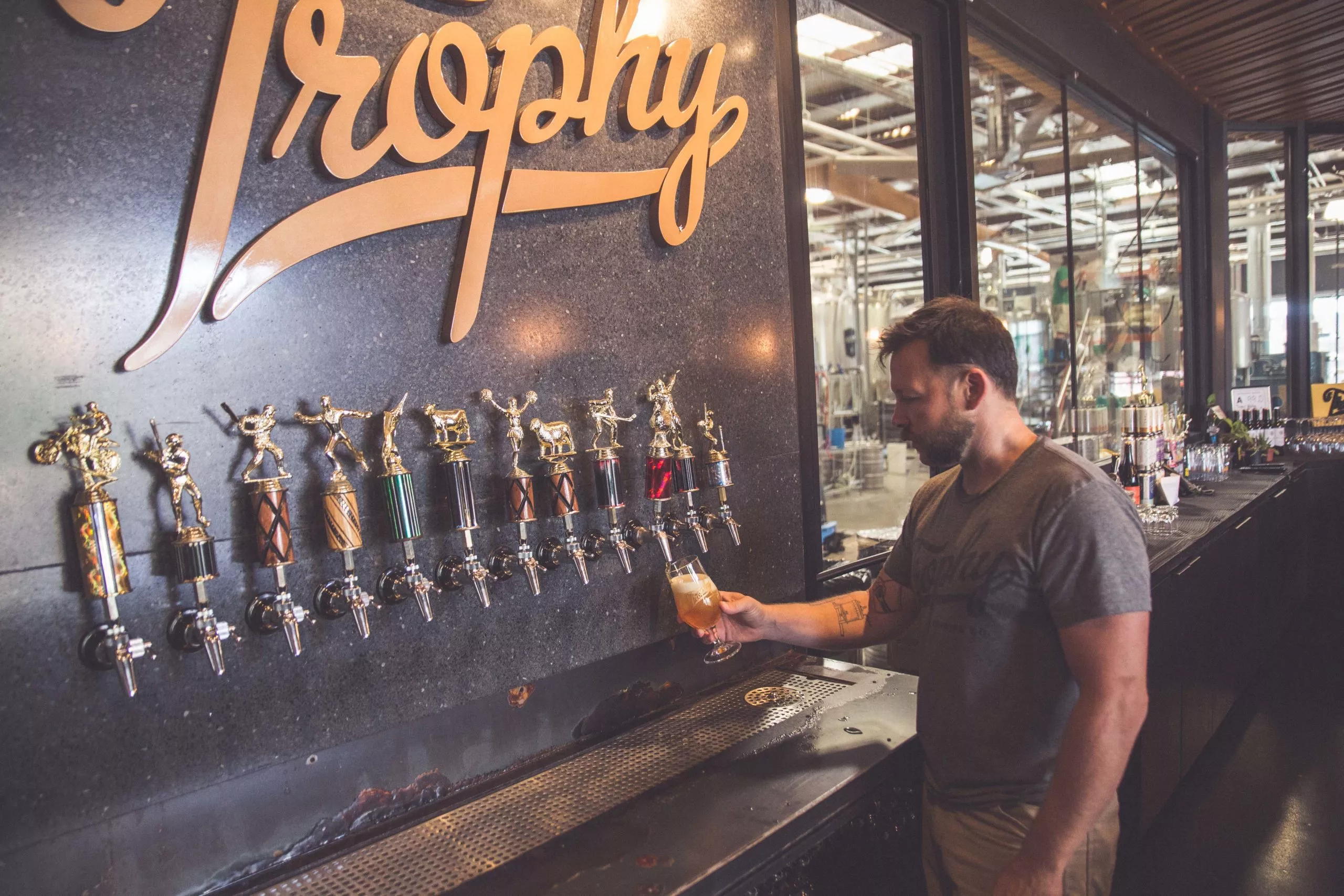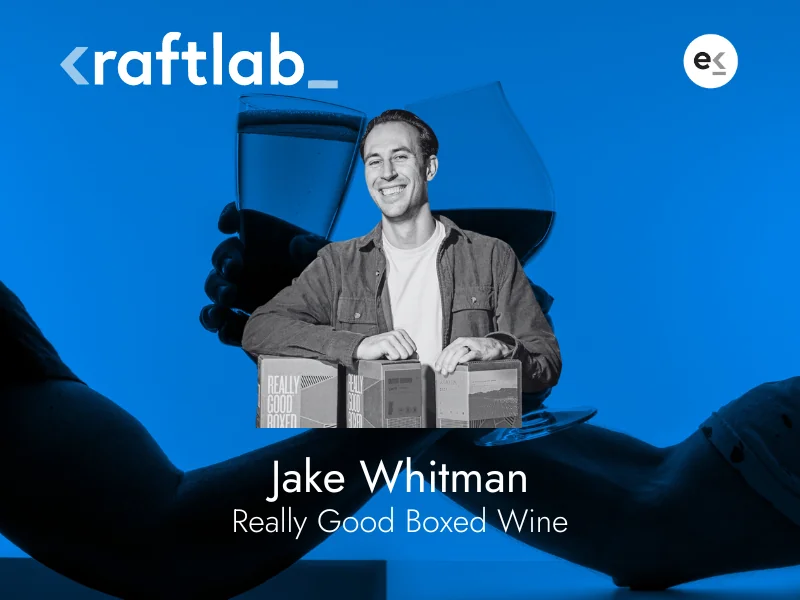The craft beer industry is a big deal. In fact, the Brewers Association estimates that the market is worth $22.2 billion. That means there’s a lot of money and a lot of product passing hands among producers, distributors, retailers, and customers — everyone is looking for a way to get their hands on their favorite brew! So, selling in the taproom is great, but distributing your product is another key way to get beers in hands. While producers and distributors might have different end goals, it’s essential that they find a way to work together to keep this booming industry growing.
Before either party jumps in to accept that first contract, read this post written in partnership with Marty Ochs, founder and consultant at E3 Craft Strategies, to ensure you’re entering a partnership with the appropriate partner.
Enlist the Help of a Professional
Trust us, it’s worth it to bring a lawyer into your corner for this one. Contracts are complex documents that are legally binding. The last thing you want to do is agree to a clause you didn’t know existed and get locked in an agreement you don’t support. We recommend that you seek out lawyers who specialize in contracts. If possible, find someone who’s worked on distributor agreements before. Your brewer or distributor friends can probably recommend someone! We should also mention that we are by no means lawyers, so while this is (hopefully) a helpful guide, we recommend hiring a professional.
Do Your Homework
Even if you followed our suggestion to enlist the help of a lawyer, you should still research your state’s laws related to distribution and other elements of your contract. It’s important to note that no matter what’s included in your agreement, state and federal laws trump all.
Not signing a contract doesn’t necessarily mean you’re out of the game either. If you’ve already offered your franchise rights to a distributor before, they might get to keep them whether you sign the latest agreement or not. For example, in Oregon, once a sale is made by a distributor, they have legal franchise rights with or without a contract by definition of a “sale” in the state. This is common in most states with undefined franchise rights not tied to minimum volume of sales. Marty says this misunderstanding is the #1 issue he sees with the craft beer industry.
You should also create a list of goals and qualities of a potential partnership. One of the most important considerations is just being on the same page and looking to achieve the same goals.
So, what typically goes into a contract?
Products
There will always be clauses related to products. Here are a few questions that each party may want to consider.
Producers:
- Are you looking to sell your whole line of products or just your flagship beers? Does your state allow you to have distributors without product exclusivity?
- Do you want to extend the right to your future product lines?
- How do your products need to be stored? Make sure you define a temperature, too.
- Who is responsible for maintaining and replacing expired or recalled products?
- How much stock will you require distributors to have on hand? Include protocol for reliable ordering.
Distributors:
- What types of products are you seeking to add to your lineup?
- How much space and what kinds of resources will you dedicate to storing a certain brand’s products?
- Are you seeking the distributor’s right of first refusal?
- Do you want to sell one line of products or both current and future offerings?
- How much do you plan to invest in building sustainable product launches?
Distribution Locations
Territories are a very important consideration for any distribution agreement — where you sell can have a direct impact on both producers and distributors.
Producers:
- Will you let more than one distributor take on selling in a particular region? (Check your state’s laws before answering this one!)
- Do you want a distributor who will help you scale or are you looking to maintain your current production capacity?
Distributors:
- Do you want to expand your distribution network and territories or stick to your current space?
- How will you handle competition in your territories?
- How many salespeople, trucks, and other supplies do you have to put toward a new customer?
Pricing
At the end of the day, everyone wants to get paid. Setting terms for payments, how you’ll receive and make them, and what sorts of margins you’re seeking is an important note of transparency. Here are a few more considerations:
Producers:
- Do you have a handle on your COGS so you can determine the right price for wholesale distribution?
- Do you have a set margin in mind?
- What price point are your customers willing to pay? Do you need to set max prices?
- How flexible do you want a distributor to be on price changes?
- What are the payment terms? Define penalties for breaking these terms as well.
Distributors:
- What margin do you need to return to make a profit?
- How will payments be made?
- Will you accept price changes? If so, on what terms?
Marketing Agreements
Products rarely sell without a marketing strategy behind them — every party knows that. But, you need to settle on things like who’s responsible for marketing and how it will be executed.
Producers:
- Are you looking for a distributor partner with an extensive marketing team or just the basics?
- How much control do you want over marketing decisions?
- Will you share your brand assets or keep them protected?
Distributors:
- What monetary resources are you prepared to put behind marketing a customer’s product?
- Do you have staff members dedicated to customer marketing?
- How much access are you seeking to a brand’s assets?
Contract Termination
Most states have specific laws related to contract termination. It’s a good idea to be informed about your state’s laws and ensure everyone is on the same page — no one wants to be left out in the cold! If your state has an ABC Commission, that’s a great place to start. If not, enlist the help of brewer or distributor friends nearby or consult a contract attorney. The Brewers Association also maintains an extensive database of state laws related to trade laws, franchise laws, direct-to-consumer shipping, and more.
Exclusivity
Exclusive contracts mean that a producer agrees to work with just one distributor in a given territory. This is an important clause for both sides to be aware of on a legally binding contract to avoid running into trouble agreeing to another contract or selling in the wrong area.
Negotiations
Everyone brings negotiating power to the table. This is where it will be especially helpful to enlist a lawyer. Marty suggests letting the lawyer set the language and letting the brewery owner negotiate with the distributor owner directly. This allows the sales directors to work on execution and not get caught up in a win/loss mentality of negotiations. If there’s something you want to ensure makes it into your contract, say so, but let your lawyer write it in legalese — you’re more protected that way.
Relationships
You could make a strong argument that having a healthy relationship in your partnership is the single most important element to success. We recommend that both distributors and producers delegate one person from their team to maintain their relationship — this ensures a clear line of communication for both parties through the wild ride of producing and distributing. After that’s settled and the contract is signed, you can determine how your team will execute your distribution agreement. Everyone in an agreement should ultimately be working toward the same goal: creating and/or selling. Let these common goals bond your teams for success.
Everything Else
This is by no means a comprehensive look at contracts — you should do your own research and ensure you have a solid understanding of what you’re looking for in a distribution agreement and how to get there before agreeing to any contract.
Marty Ochs is the founder of E3 Craft Strategies, a consulting group that helps craft companies grow and develop core competencies like sales, distribution management, supply chain, branding, and more. He previously worked as the president of sales for Brew Pipeline Inc. and as the vice president of sales for Ninkasi Brewery and helped establish Oskar Blues Brewery. His varied experience helps him blend enthusiasm, passion, and creativity to develop unique strategic concepts for sales & marketing programs that drive measurable, energetic, efficient, and effective business-building results.



